President Barack Obama marked the 50th anniversary of one of the Civil Rights movement’s ugliest days by invoking the present-day struggle for human rights around the globe and confronting the controversy over how police treat African-Americans in the United States today.
Obama called upon the power of the example of the protesters who were beaten as they tried to cross the Edmund Pettus Bridge in Selma, Ala., in the historic voting rights march.
“What could be more American than what happened in this place?” Obama said.
In a speech given a half century since the violent attack by police which set into motion the passage of increased voting rights for African-Americans, the President called upon the more than 100 members of Congress present to return to Washington and increase voting protections for all Americans.
The Selma address was an opportunity for the first black President to reflect publicly on the efforts of many throughout history who made his presidency a reality. It arrived amid a series of present-day challenges that have forced Americans to confront how far the country has progressed since that confrontation between marchers and police officers.
This week, a Justice Department report revealed deep prejudices among police officers in Ferguson, Mo., where an unarmed black teenager was killed by a white police officer last year. Throughout the past year, the names of young black men who have died at the hands of police officers have become a rallying cry for protesters who have revived a national conversation about policing and equality.
See Barack Obama's Historic Event in Selma
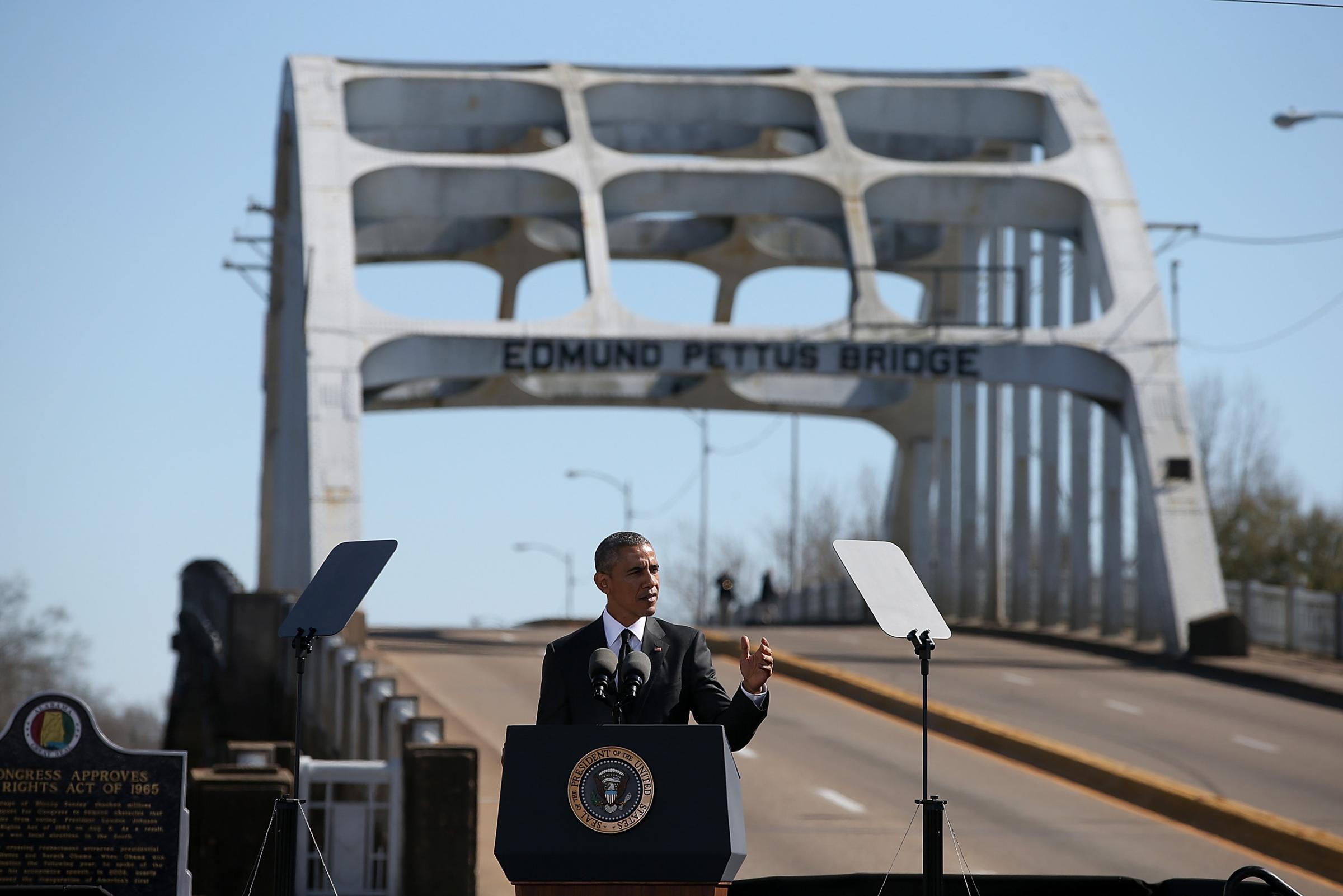
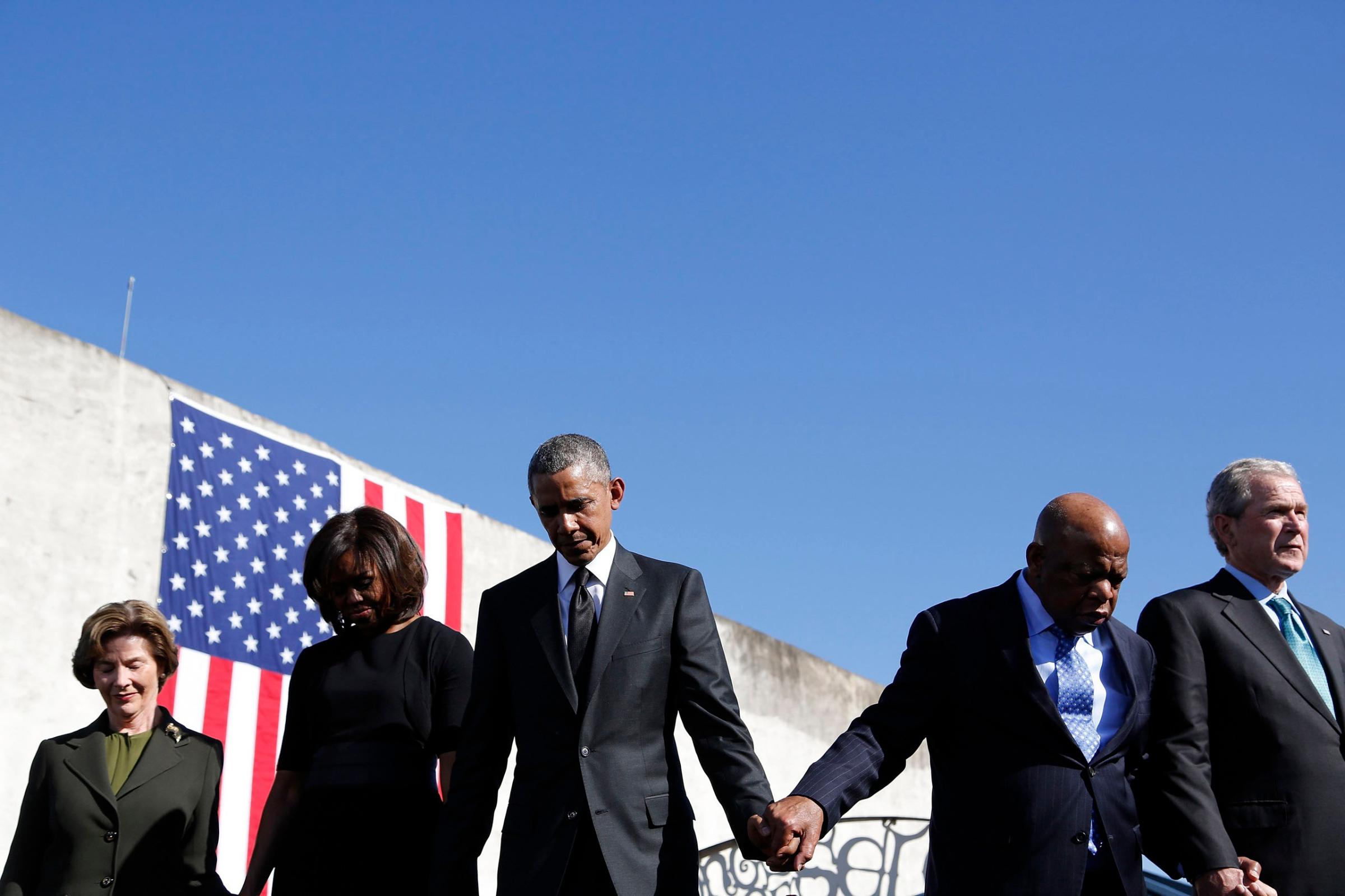
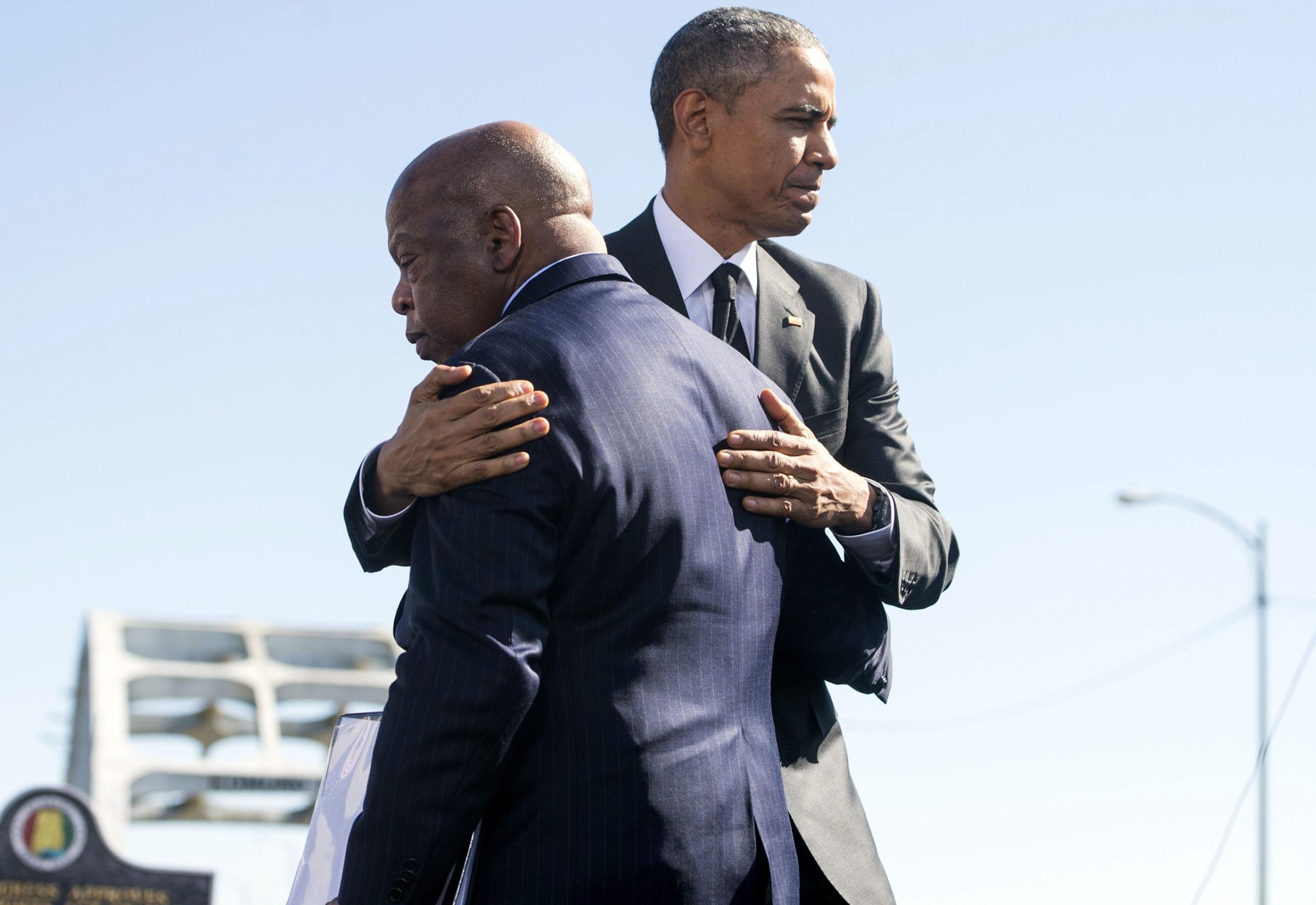
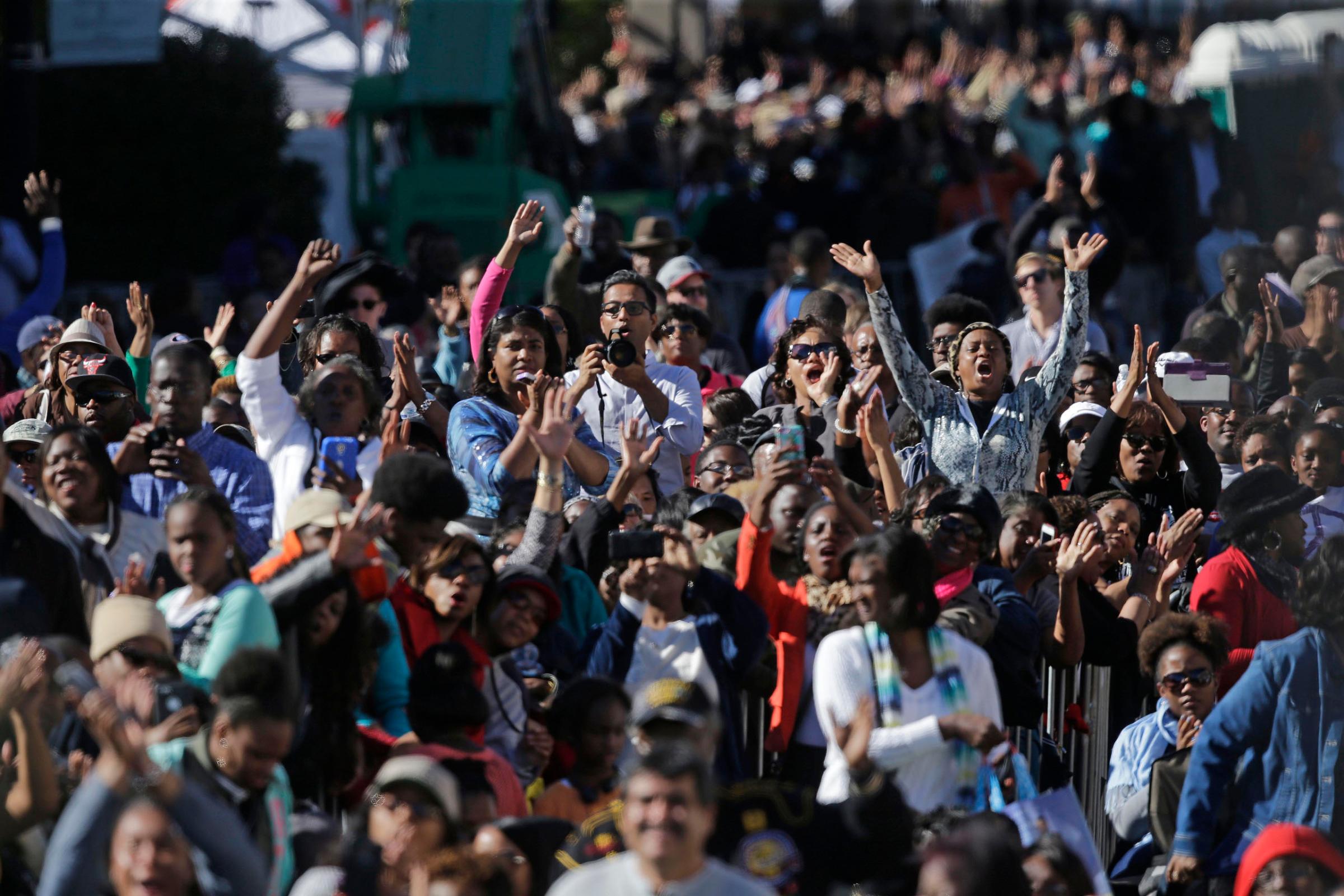
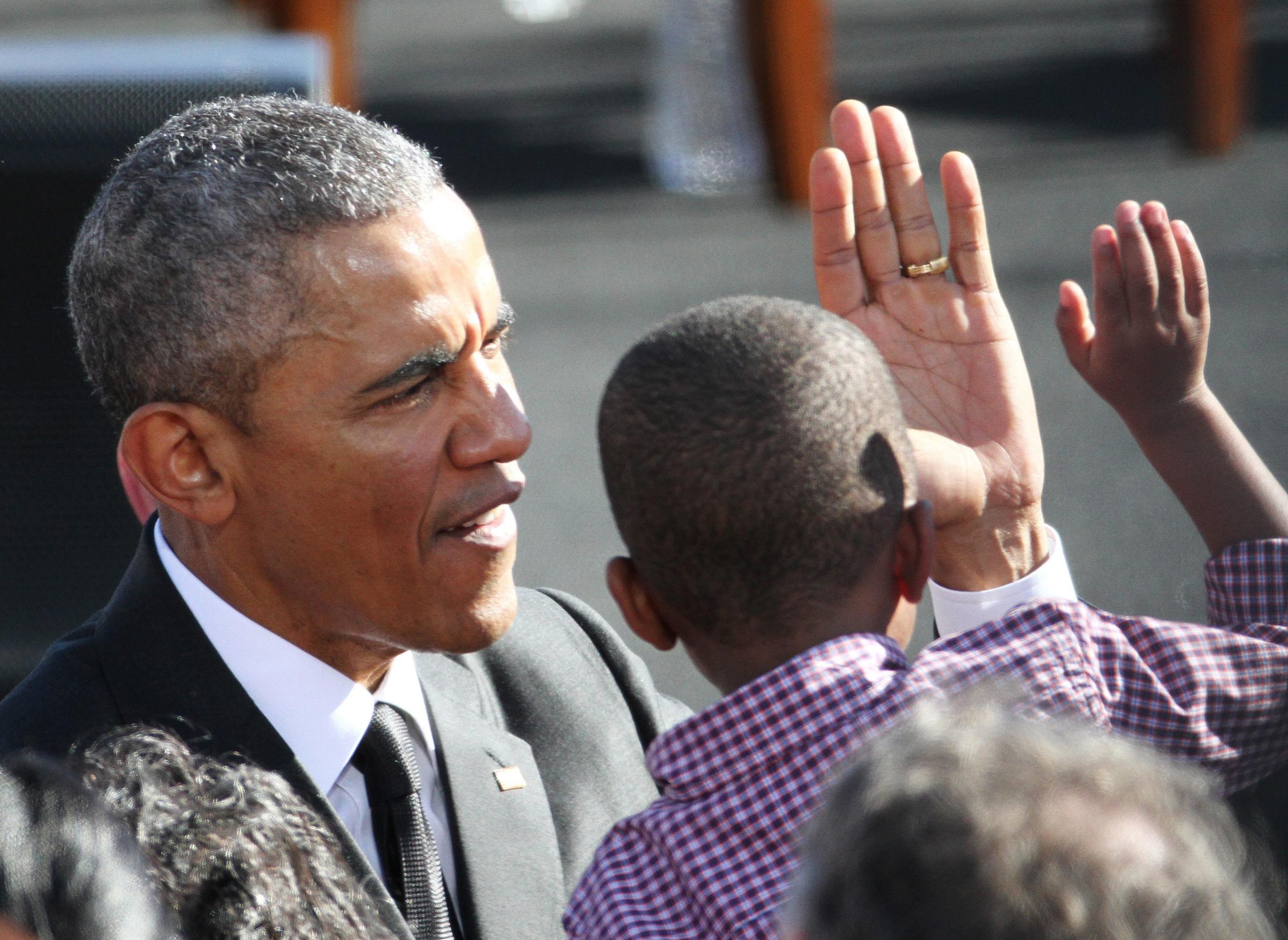
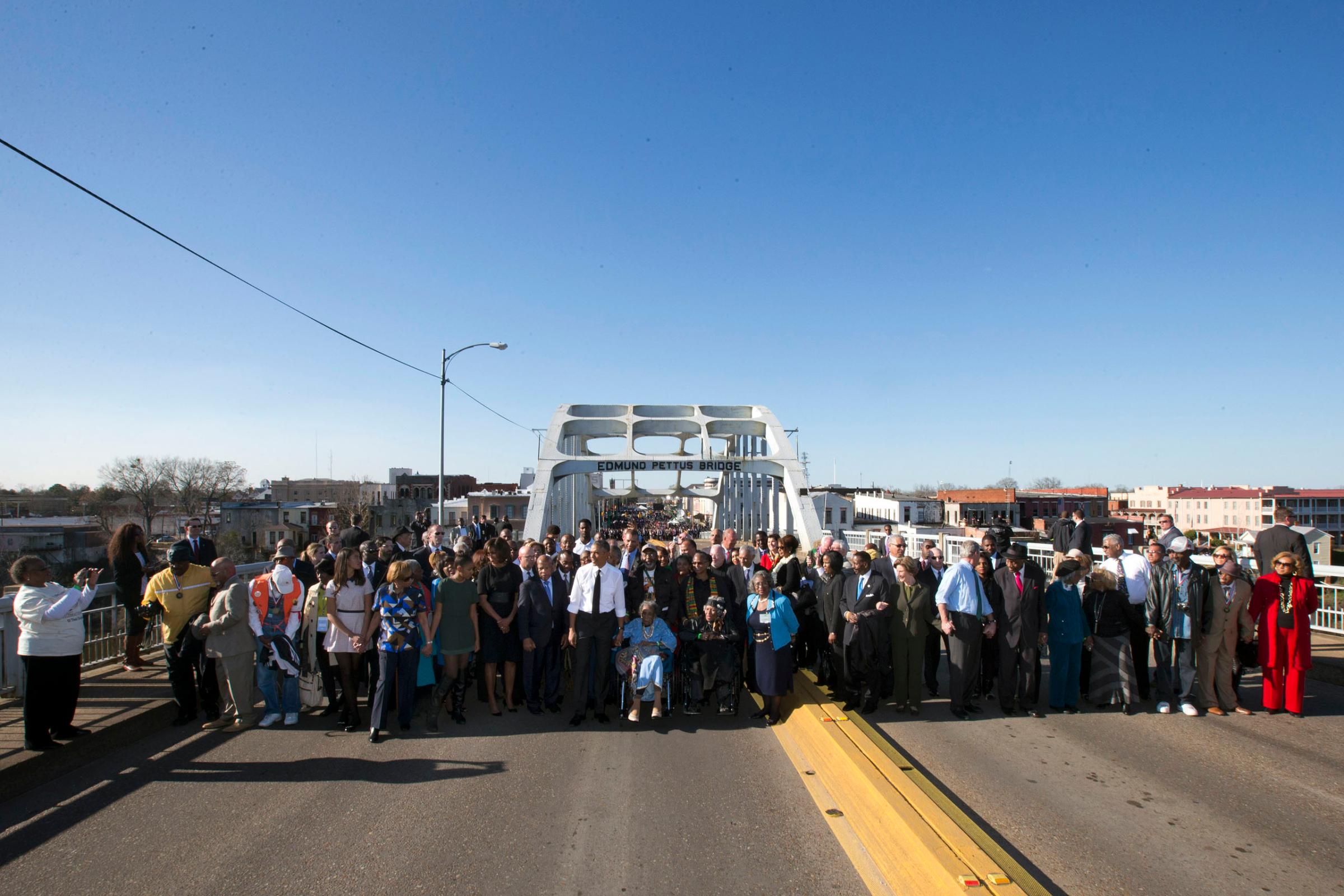
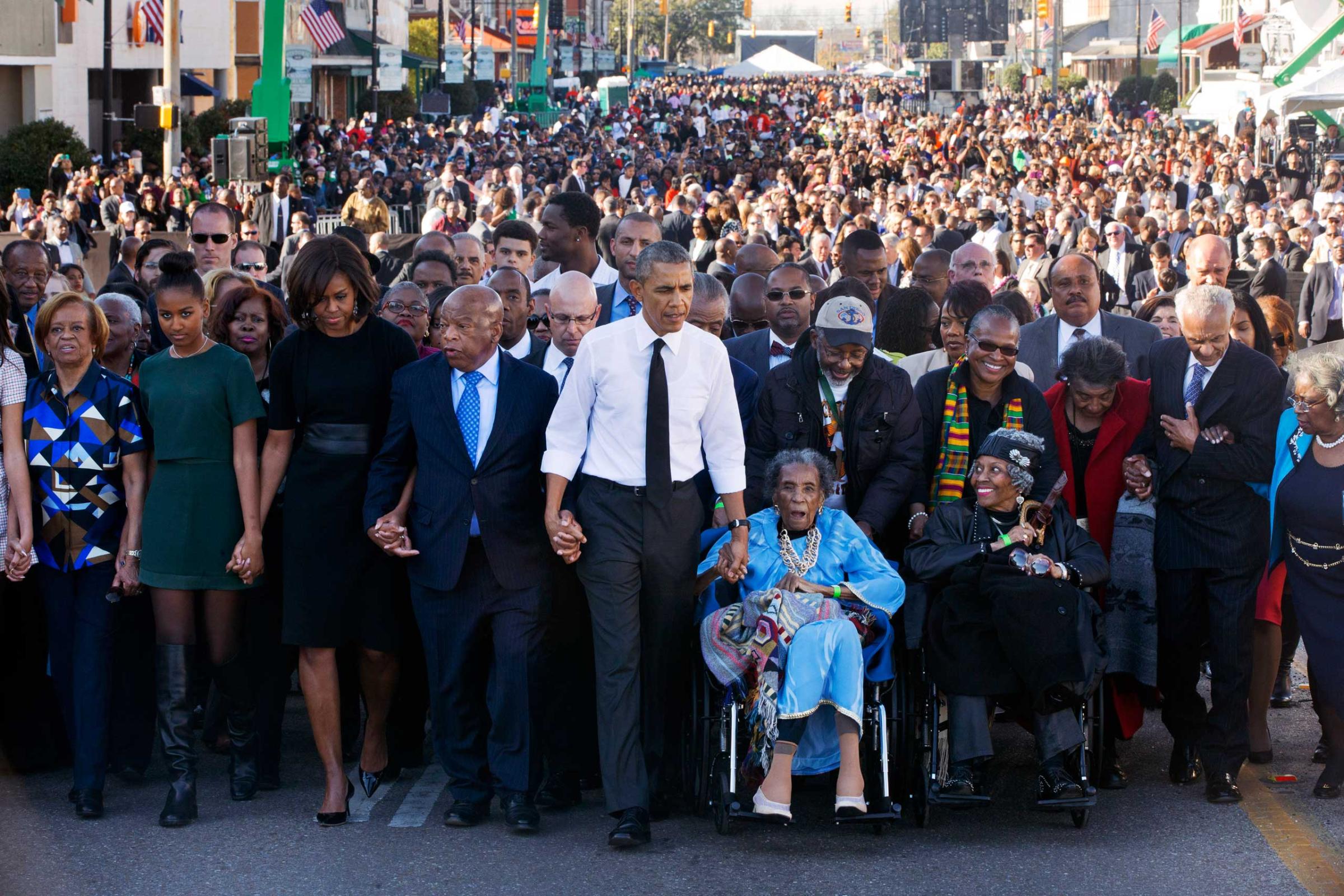
“What happened in Ferguson may not be unique, but it’s no longer endemic, or sanctioned by law and custom; and before the Civil Rights movement, it most surely was,” Obama said.
Obama dismissed the notion that little has changed in the past 50 years, noting advances for people of color, women, and gay Americans, but said more must be done.
“The march is not yet over, the race is not yet won,” Obama said.
The President was one of many luminaries gathering in Alabama this weekend to commemorate the anniversary. He also joined by many who participated in the march.
“This is like my graduation,”said 104-year-old Amelia Boynton Robinson. “I’m very proud because my mother said many years ago, we’re going to have a black president.”
On March 7, 1965, more than 600 protesters attempted to march from Selma to Montgomery, Ala., the state capital to register to vote. Their march was halted by Alabama state troopers who attacked the protesters. Five months later, riding a wade of national protest, Lyndon Johnson signed the Voting Rights Act, the federal law preventing discrimination in voting.
Some 50 years since the march, key parts of the Voting Rights Act, were invalidated by a Supreme Court decision that Congress has not addressed. On Saturday, the President called on the members of Congress in attendance to pass an amendment to the act.
“If we want to honor this day, let these hundred go back to Washington, and gather four hundred more, and together, pledge to make it their mission to restore the law this year,” Obama said.
Attending the President’s speech, Sen. Tim Scott, the South Carolina and first African-American Republican to be elected to Senate since Reconstruction, said in an interview that voting rights should not be “politicized.”
“Their sacrifice could easily be trampled by making racial justice into a partisan issue,” Scott said. “A conversation about voting rights is appropriate, politicizing it is not.”
One of the protesters attacked on the Edmund Pettus Bridge was John Lewis, who joined Obama in Selma this weekend.”I thought I was going to die on that bridge,” Lewis said Saturday, speaking from the pulpit of Selma’s A.M.E. Brown Church where the young Civil Rights leader took refuge that day. “I thought I saw death.” Lewis, today a Congressman from Georgia, led the delegation of Congressmen to Alabama for the weekend. Earlier in the week, Republicans in Congress came under fire when no member of the party’s leadership was expected to attend the event. House Majority Leader Kevin McCarthy announced late Friday he would attend.
Obama was joined by former President George W. Bush, who in 2006 reauthorized the Voting Rights Act.
Obama said the courage shown at Selma remains an example to the world.
“This generation of young people can draw strength from this place,” the President said, “where the powerless could change the world’s greatest superpower, and push their leaders to expand the boundaries of freedom.
Charlotte Alter and Victor Luckerson contributed reporting from Selma, Ala.
More Must-Reads from TIME
- Your Vote Is Safe
- The Best Inventions of 2024
- How the Electoral College Actually Works
- Robert Zemeckis Just Wants to Move You
- Column: Fear and Hoping in Ohio
- How to Break 8 Toxic Communication Habits
- Why Vinegar Is So Good for You
- Meet TIME's Newest Class of Next Generation Leaders
Contact us at letters@time.com